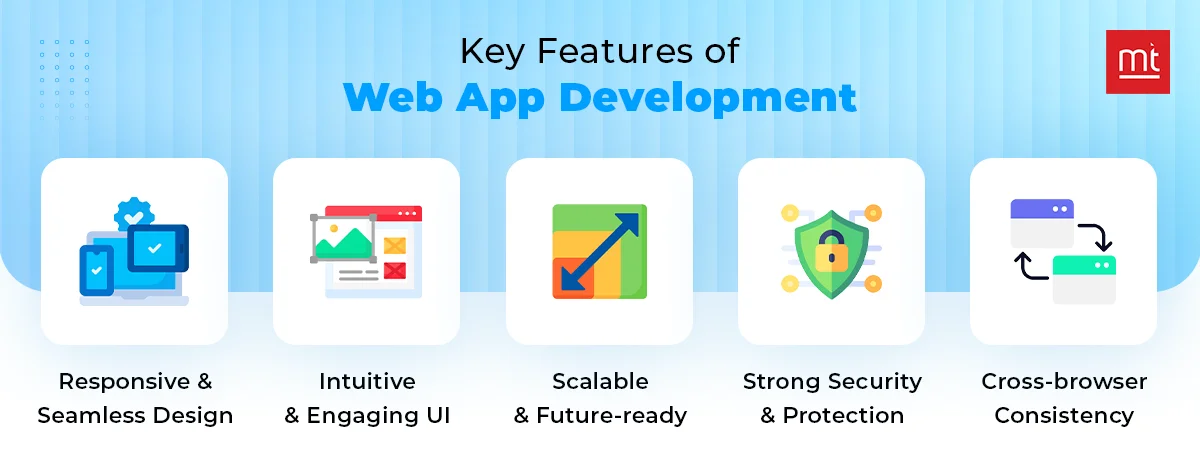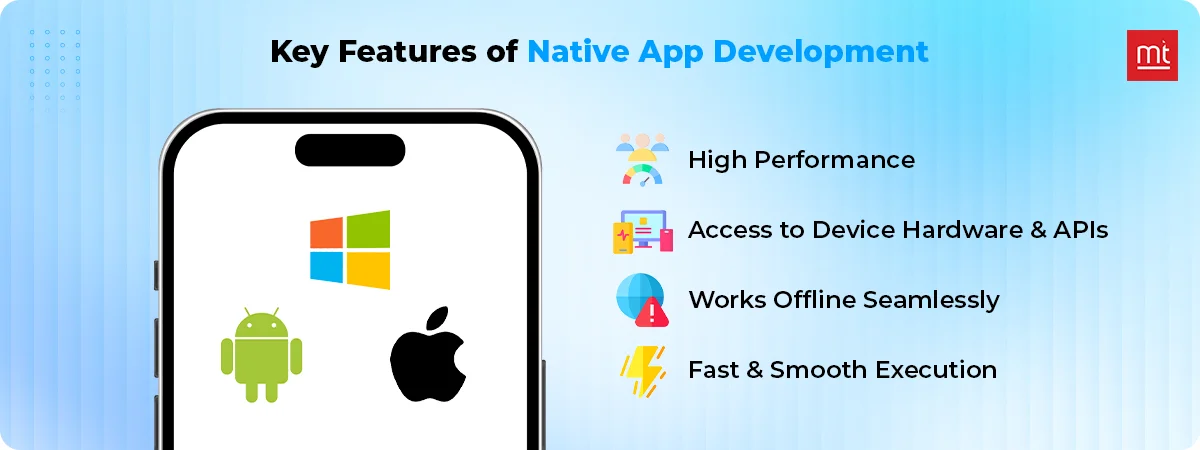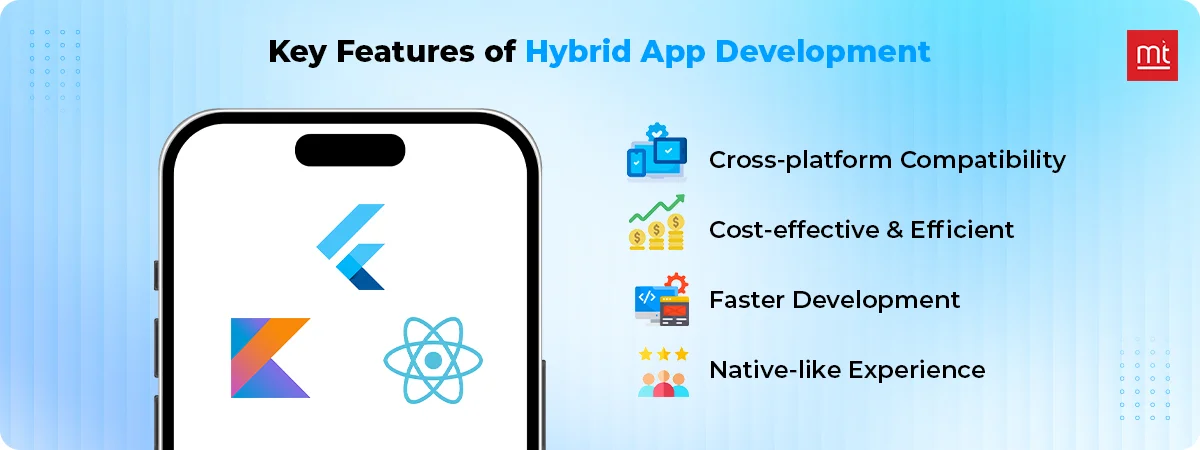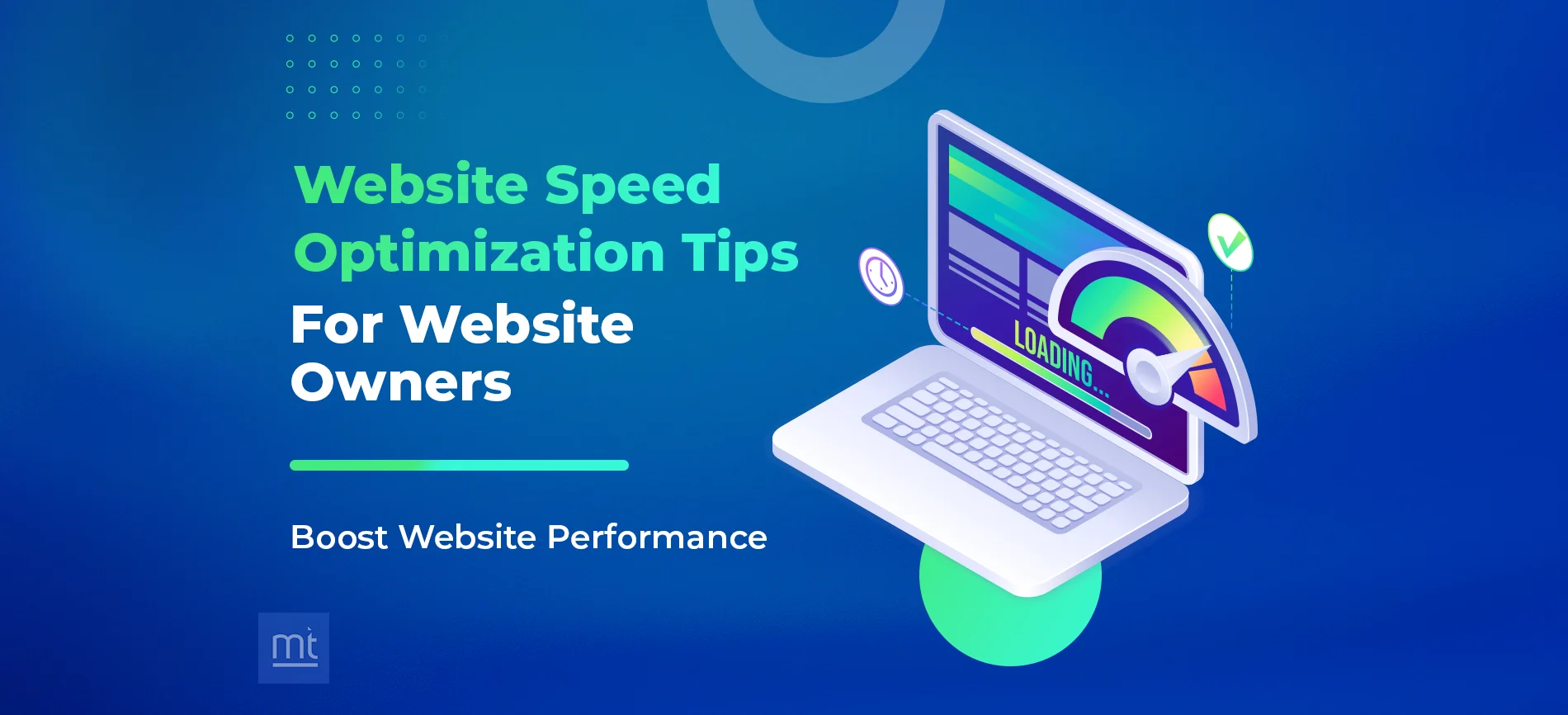Get Free Trial Week Developer Access, Try Before You Hire. Click Here to Claim Now
Introduction:
When it comes to mobile app development, choosing an effective approach is important. There are three popular methods to develop a mobile application- web, native and hybrid.
You must consider the overall scope of the project, the goals and objectives to decide the best-fit approach. before we proceed with the approach selection, you must answer these questions that can help decide the perfect framework.
- How fast does the app have to be?
- Can you develop any part of the app in-house?
- What is the goal to accomplish with the app?
- What is your budget?
- What features and functionalities do you want in your app?
Once you have considered the factors and need of the application, choosing the framework is a piece of cake. All you can just do is to hire the best Mobile App Development Company, one such example is ManekTech, and get the best app solution.
This article will delve deeper into helping you choose the mobile app development framework that best supports your needs.
What is Web App Development?
Web app development is when you create and deploy the applications for the web browsers. These are accessed via the web servers over the Internet.
They are platform agnostic and can be run across devices that can pull up a web browser. The key components of a web application include the frontend and the backend. The frontend technologies include HTML and CSS. You can also use JavaScript to build the web apps.
Backend technologies include Python, Ruby and Java languages. It also comprises frameworks like Django and RoR.
Key Features of Web App Development

- Responsive design that allows seamless display across devices and screens.
- User-friendly and interactive interfaces that uplift experiences.
- Scalable solutions that match the data or user growth.
- Extensive security measures to protect the users and prevent breaches.
- Cross-browser compatibility for consistency across browsers.
Pros of Web App Development

- Can run on any web-enabled device seamlessly.
- Installation not needed, which reduces the setup hassles.
- Easy to update as it is centralized.
- Cost-efficient development, as single app can run on multiple platforms.
Cons of Web App Development

- Requires stable internet connection to perform.
- Slower than native apps when it comes to heavy tasks.
- Limited offline functionality available for users.
What is Native App Development
When you want to have a dedicated application for each platform, Native Application Development is the way to go. Native applications are developed on a dedicated platform using the native languages such as Swift and Objective-C for iOS and Java or Kotlin for Android. Native apps are very effective, fast and responsive, though it is a costly affair as compared to web app development and hybrid app development. However, Mobile App Development offered by Phoenix can be cost effective as you get experienced developers for your project. You can get your project delivered within time.
Key Features of Native App Development

- Can create platform-specific code that ensures optimal performance.
- Access to the device-specific hardware, sensors and APIs.
- Offline functionality allows app availability in the absence of internet.
- Faster execution and smooth performance of applications.
Pros of Native App Development

- High-performing applications optimized for the platform.
- Seamless integration with the hardware and features.
- Intuitive interfaces that enhance experience.
- Excellent security using the platform-specific tools.
- Uninterrupted use with offline functionality.
Cons of Native App Development

- Increases development cost due to individual codebases.
- Longer-time to develop in case of multi-platform application.
- Requires platform-specific skills and expertise.
- Limits code reusability across operating systems.
What is Hybrid App Development
When you want to have a cost-effective and cross-platform application, Hybrid App Development is the way to go. Hybrid apps are a combination of Web and Native apps. Importantly, cross-platform applications or Hybrid applications are not native but they perform like a native application. Most importantly, developers don’t need to write separate code for each platform, the code can be shared across platform it will result in less development time and cost.
Key Features of Hybrid App Development

- Offers cross-platform compatibility as you can use a single codebase for multiple platforms.
- Cost-effective as you need not develop and maintain different codebases.
- Accelerates development timeline owing to shared coe.
- Offers native-like experience.
Pros of Hybrid App Development

- Excellent reach as it targets multiple platforms
- Faster development
- Lowered cost of development
- Easy to maintain codebase
- Offline support for applications available
Cons of Hybrid App Development

- Slower than the native applications
- Limited native features available, and they are plugin-dependent
- Troubleshooting can be challenging
Native App vs Hybrid App vs Web App: The Best Choice
In your journey to select between native vs hybrid vs web app approach, you must consider several factors, such as the goals and resources available. We have identified the top factors that can help make the right choice.
#1. Performance Needs
- Native Apps: Native apps are known for seamless performance, as they are optimized for the specific platform and can access the device-specific features. In case of an app with intensive graphics, you must choose native approach.
- Hybrid Apps: Hybrid apps use web technologies, such as HTML and CSS that are wrapped into a native container. While they offer good performance, they may not perform in case of resource-intensive situations.
- Web Apps: Web apps are browser-based applications that offer lower performance compared to the others. They are further limited by the browser’s capabilities.
In the debate between web vs native vs hybrid, native apps are best when it comes to performance followed by hybrid applications.
#2. Development Time and Cost
- Native Apps: You need to create separate codebases for the different platforms. This can increase the cost of development and increase the timeframes as well.
- Hybrid Apps: You develop a single codebase that runs on different platforms. This will reduce the cost and time of development.
- Web Apps: They have the shortest timeline as you need to build one codebase that can work on any browser. As result, it is low-cost when compared to the other app types.
In the native vs hybrid debate, native costs more. However, it is justified if you need the performance. you can go with web apps if you are looking for the lowest cost and widest reach for the application.
#3. User Experience
- Native Apps: They extend the best user experience that’s tailored to the design guidelines of the platform and leverage the platform’s potential.
- Hybrid Apps: They offer similar user experience however, they may not be able to achieve the platform-specific designs. Moreover, they may not be able to get all the device specific accesses.
- Web Apps: Web apps have a lot more UX restrictions as compared to the other two. These may not look or feel smooth like native apps.
If you want native-like UX, you can go with native app development. However, if you have a restricted budget, you can go with hybrid application.
#4. Maintenance
- Native Apps: It is difficult to maintain the native applications as you need to consider the device-specific features and hardware. You must also maintain the different codebases for the individual apps and update them in sync with the guidelines.
- Hybrid Apps: It is easier to maintain as you need to look after a single codebase and access. This allows you to upgrade the apps faster and keep it relevant.
- Web Apps: It is the fastest to maintain as you simply need to keep them in sync with the technologies and functionality.
When it comes to maintenance between native vs web vs hybrid, it is the hybrid app that works best.
Depending on your needs and priorities, you can select anyone between native vs hybrid vs web app development approach.
Conclusion
Having gone through these analyses, you could be able to take the right decision and choose one out of the three. However, you can also consult a Mobile Application Development and free consultation for your projects. ManekTech, a mobile app development company can assist you for your next big iPhone App, Android App or Hybrid App development project. Let’s hire a perfect Mobile App Development Company and incredible mobile application right in the deadline. For any business related app or queries, feel free to contact us or call us +918511428441 to get free quotes.
Subscribe to Our Newsletter!
Join us to stay updated with our latest blog updates, marketing tips, service tips, trends, news and announcements!





















